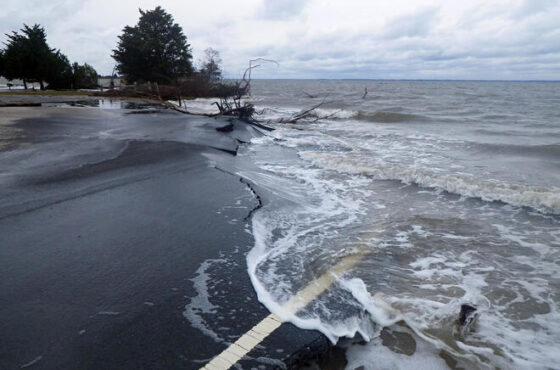Herb Needleman, MD: An Advocate’s Life, Well-Lived
Published by the Natural Resources Defense Fund
Decades before the Flint water debacle, Herb Needleman knew all too well the close link between poverty and lead poisoning. Dr. Needleman, a pediatrician and one of my inspirations, passed away last week. His life and example meant so much to me, personally, as well as to our collective work here in NRDC’s Health Program.

The Heinz Foundation
I went to medical school thinking I’d follow in my father’s footsteps and become a child psychiatrist. But that path just didn’t engage me, or feed my passion to work for a better environment. Early in my training, I never found good role models for what I thought I wanted to do. Luckily, I found my own way in the mid-1990s to NRDC, where I was one of the first two physicians hired. I served as a watchdog over the EPA’s implementation of new policies pertaining to pesticides and other toxic chemicals impacting on children.
Momentum for such policies was still building, mostly in response to new evidence on the widespread harm of a slew of persistent metals and other environmental pollutants, including dioxin and PCBs, mercury and arsenic, and of course, lead. That’s where I first crossed paths with Herb. Like Dad, he was a child psychiatrist. And he’d done much of the seminal work that first linked childhood exposure to lead, in house paint and from leaded gasoline, to brain damage and problems with learning and behavior. His work in fact paved the way to finally ending the hare-brained practice of adding lead to paint and gasoline, over half a century after public health experts had first warned it was a stupid idea.
Soon after I joined NRDC in 1996, the EPA appointed Dr. Needleman to one of its expert advisory committee on pesticides. The Agency was struggling to implement a new law – the Food Quality Protection Act (FQPA) – and its novel provisions to protect children from early life exposures to brain-toxic pesticides. Needleman brought to the work his acute awareness of the history of lead. As with lead, we already knew that thousands of people, such as farmworkers, were being acutely poisoned through high-level exposures to organophosphate insecticides, such chlorpyrifos. The raging battle was over whether children exposed to the much lower levels found in house dust, or in fruit and vegetables sprayed with it and then consumed, were suffering more subtle effects on their brain development and ability to learn – effects similar to what Needleman had found among children exposed to lower levels of lead. (Today, we know there is no safe level of exposure to environmental lead.)
Tons of science on organophosphates had already been done by the late ‘90s. But manufacturers were pressuring EPA to wait for still more studies to be completed before tightening its regulations. Among those, industry wanted studies that would have intentionally dosed ‘volunteers’ with exposure to these insecticides, and then followed them closely to see whether and how badly they eventually would be injured. In contrast, NRDC supported the assertion by Needleman and others that this would be highly unethical – tantamount to feeding someone lead paint chips intentionally. (The fact that previous human studies had been performed on New York state prison ‘volunteers’ also should not have excused the practice.) We already knew enough about how vulnerable a child’s young brain was to know that as with lead, the poisonings at higher exposures were predictive of more subtle damage at lower levels of exposure. Twenty years later, NRDC is still fighting this scientific battle, including around ongoing exposures to chlorpyrifos.
Even more than his world renown, my most enduring impression of Herb Needleman is his humility and fierce advocacy for children. His work had literally brought about an end to the scourge of leaded gasoline. And yet he was a regular guy, the first in his family to go to college, I later learned. Never did he forgot that behind arcane policy debates are children — often poor children — who would pay the price if EPA didn’t adequately protect them.
There won’t soon be another physician-environmental advocate like Herb, though we need them more than ever. When I saw Herb in action, I saw more clearly the path open to me, and I was inspired to stay true to it. He never gave up when confronted by the power of corporate polluters, whether the makers of lead additives or of toxic pesticides. He persisted. And so will we. Like Herb, we know our science is right, and the politics are wrong for the health of our children.
Related Blog Posts
Read the full article at: https://www.nrdc.org/experts/david-wallinga-md/herb-needleman-md-advocates-life-well-lived





